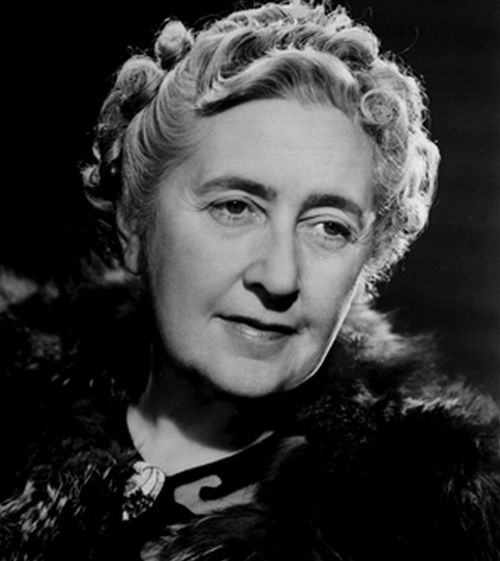Hello readers, today I want to tell you "my story" with my
favorite author, Agatha Christie (1890 - 1976), who is by the way the best
selling writer of all times.
I was only 10 years old when I discovered Agatha's world. I was bored
with no books, so my mom suggested reading "Murder on The Orient Express"
and that was the official start of a life time love story between me and Mrs.
Christie.
 |
Agatha Christie
|
The world of Agatha is really amusing: crimes, detectives, police, and
lots of details. The most valuable thing in her literature is the way she creates
her plots and links them to human nature understanding. There is a lot of ingenuity
in her style. Detective Fictions in general depend on cheep excitement, but
Christie took that genre to another dimension. She wrote stories about "human nature", whereby the crimes are only master keys to unlock the mysteries inside
every single one of us.
I read about 40 to 50 Agatha Christie novels so far, but I couldn't
solve any of them by myself. She always succeeded at fooling me that I felt I
was so stupid. Nevertheless that was very inspiring for me as a writer. She
herself didn't believe she could ever write a story. She got a very bad cold one
day and was forced to stay in bed for a couple of weeks. Her mom asked her to
try writing, that's somehow was the first sparkle in her impressive carrier: 66
novels and 15 short story collections. She sold more than 4 billion copies, and
holds the world's most-widely published books record as well as the most-translated
individual author. Her books have been translated into at least 103 languages.
Finally, her stage play The Mousetrap holds the record for the
longest initial run (1952 - now) at Ambassadors Theater in London.
I have to admit that Agatha is one of the reasons behind my love for
England. She described that far cold and cloudy country so eloquently that sometimes
I feel I know it like the palm of my hand. I have only visited England through
books, hers in particular. Maybe my thoughts about England are a little bit
outdated for I always imagine myself travelling in a SLOW train in the middle
of nowhere in the English country side, drinking a DECENT cup of tea, and
complaining about the bad weather.
 |
| Slow Train |
I highly appreciate the characters in Agatha's books. They are full of
life due to the abundance of details especially the protagonists. The Belgian detective Hercules Poirot (33 of
Christie's novels and 54 short stories) and Miss Jane Marple (12 of Christie's
novels and 20 short stories) for instance, were both old and super smart. They
solved lots of crimes by just meditating and thinking. The other characters are
important as well, especially for the comedy that reflects Agatha's sense of
humor. The funniest character in my opinion is Ariadne Oliver (a friend of Poirot, who is the fictional
Agatha as she is a weird writer too). Oh, by the way I believe that all of
Agatha's characters are real and I still think that I can meet Poirot or Miss
Marple on the streets.
Agatha wrote about people in many
strange places and eras: ancient Egypt 3000 years ago, or Baghdad after the
world war II, or even in a stopped train in middle of Europe. This makes it
hard for me to choose my favorite book. However, I guess "Murder on The Orient
Express" is my most favorite as it introduced me to Agatha. I adore a couple
of other titles like "The Murder of Roger Ackroyd" and "And Then
There Were None" as well as her first published novel "The Mysterious
Affair at Styles" that was rejected by 6 different publishers before it
became an international hit in 1920.
 |
| Murder on The Orient Express |
I don't know what to add more.
Everything mentioned above are the most important things in my experience with Agatha.
However, I want to ask you all about your experience with Agatha. Have you ever
read any of her books? What do you think about them? Don't forget to tell us
more about your favorite authors as well.



